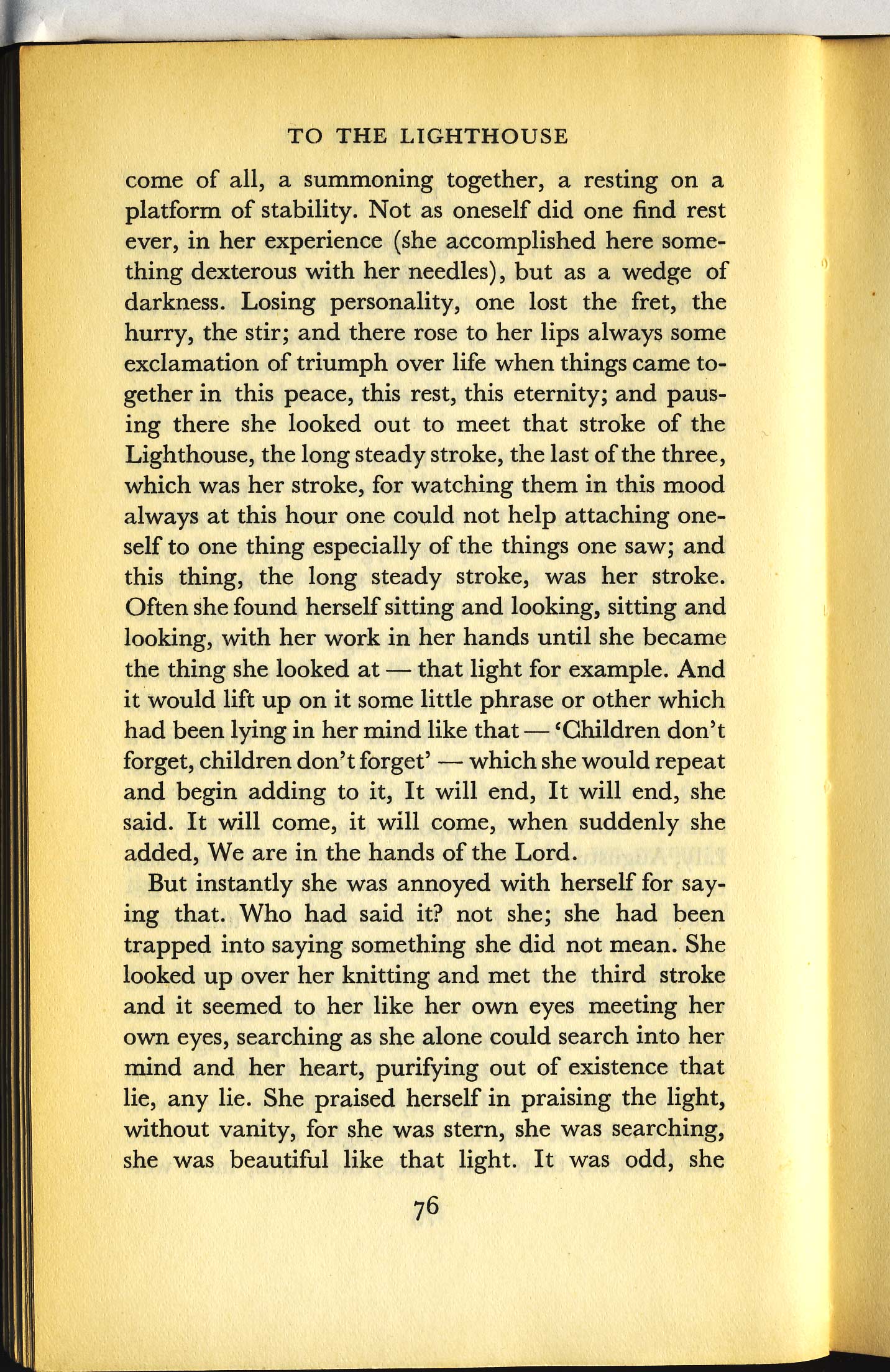
TO THE LIGHTHOUSEcome of all, a summoning together, a resting on aplatform of stability. Not as oneself did one find restever, in her experience (she accomplished here some-thing dexterous with her needles), but as a wedge ofdarkness. Losing personality, one lost the fret, thehurry, the stir; and there rose to her lips always someexclamation of triumph over life when things came to-gether in this peace, this rest, this eternity; and paus-ing there she looked out to meet that stroke of theLighthouse, the long steady stroke, the last of the three,which was her stroke, for watching them in this moodalways at this hour one could not help attaching one-self to one thing especially of the things one saw; andthis thing, the long steady stroke, was her stroke.Often she found herself sitting and looking, sitting andlooking, with her work in her hands until she becamethe thing she looked at ŌĆö that light for example. Andit would lift up on it some little phrase or other whichhad been lying in her mind like that ŌĆö ŌĆśChildren donŌĆÖtforget, children donŌĆÖt forgetŌĆÖ ŌĆö which she would repeatand begin adding to it, It will end, It will end, shesaid. It will come, it will come, when suddenly sheadded, We are in the hands of the Lord.But instantly she was annoyed with herself for say-ing that. Who had said it? not she; she had beentrapped into saying something she did not mean. Shelooked up over her knitting and met the third strokeand it seemed to her like her own eyes meeting herown eyes, searching as she alone could search into hermind and her heart, purifying out of existence thatlie, any lie. She praised herself in praising the light,without vanity, for she was stern, she was searching,she was beautiful like that light. It was odd, she76









